 W
WEduard Arnhold was a German entrepreneur, patron of the arts and philanthropist.
 W
WAugust Lederer, was an Austrian industrialist and art collector whose art collection was looted by Nazis. He helped promote the artists of the Vienna Secession, notably Gustav Klimt.
 W
WJules Semon Bache was an American banker, art collector and philanthropist.
 W
WSimon Bauer (1862–1947) was a Jewish businessman in France and a collector of Impressionist art. His collection was stolen by the Vichy government in October 1943. While some works have been recovered, most are still missing. The Simon Bauer collection included 93 works from the Impressionist movement. Since the liberation of France, some of the canvases have reappeared at auctions or exhibitions in museums.
 W
WLeo Bendel was a tobacco dealer and art collector.
 W
WCharlotte Bergman (1903-2002) was born in Antwerp and was an art collector and philanthropist.
 W
WIsaak Izrailevich Brodsky was a Soviet painter whose work provided a blueprint for the art movement of socialist realism. He is known for his iconic portrayals of Lenin and idealized, carefully crafted paintings dedicated to the events of the Russian Civil War and Bolshevik Revolution.
 W
WComte Isaac de Camondo was a member of the House of Camondo noted primarily as an art collector with a noteworthy interest in the then "avant-garde" artists of the Impressionist and Post-Impressionist movements. He bequeathed his collection to The Louvre in 1908. He worked as a banker and was an amateur composer.
 W
WCount Moïse de Camondo was an Ottoman Empire-born French banker and art collector. He was a member of the prominent Camondo family.
 W
WPaul Cassirer was a German art dealer and editor who played a significant role in the promotion of the work of artists of the Berlin Secession and of French Impressionists and Post-Impressionists, in particular that of Vincent van Gogh and Paul Cézanne.
 W
WLeo Castelli was an Italian-American art dealer. His gallery showcased contemporary art for five decades. Among the movements which Castelli showed were Surrealism, Abstract Expressionism, Neo-Dada, Pop Art, Op Art, Color field painting, Hard-edge painting, Lyrical Abstraction, Minimal Art, Conceptual Art, and Neo-expressionism.
 W
WDavid David-Weill (1871–1952) was a French-American banker, chairman of Lazard Frères in Paris, who built an important collection of art. His collection was plundered by the Nazis during the Second World War and over 2000 items seized. He was a major donor to French and American museums and galleries and a benefactor to universities.
 W
WAuguste Dreyfus was a French businessman who made his fortune by financing the Peruvian trade in guano. Dreyfus joined a small textile trading firm set up by three of his elder brothers and moved to Lima, Peru to act as their local representative. He became involved in the guano trade, and in 1869 signed a major contract with the Peruvian government that gave him a monopoly over exports of Peruvian guano to Europe. With this he controlled the largest source of Peruvian national income.
 W
WMax James Emden was a German Jewish businessman, philanthropist and art collector whose properties, including valuable paintings, have been the object of Nazi era restitution claims. The manner in which his legacy has been handled has sparked a debate in Germany about the erasure of information concerning the Nazi era and inspired films about his life.
 W
WCharles Ephrussi was a French art critic, art historian, and art collector. He also was a part-owner and then editor as well as a contributor to the Gazette des Beaux-Arts, the most important art historical periodical in France.
 W
WFederico Gentili Di Giuseppe, also known as Frédéric Gentili di Giuseppe was a businessman and collector of Venetian art.
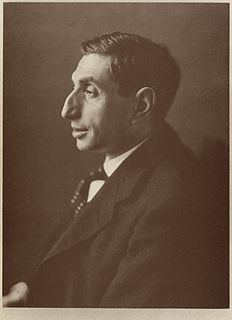 W
WAlfred Flechtheim was a German Jewish art dealer, art collector, journalist and publisher persecuted by the Nazis.
 W
WJulius Freund was a German entrepreneur and art collector persecuted by the Nazis because Jewish.
 W
WPontus Fürstenberg was a Swedish art collector and merchant from a Jewish family. He was married to Göthilda Magnus.
 W
WCurt Glaser was a German Jewish art historian, art critic and collector who was persecuted by the Nazis.
 W
WNoam Gottesman is a New York City-based, British-American businessman, former hedge fund manager, and co-founder of GLG Partners. He later entered the restaurant industry, investing in establishments including Eleven Madison Park in New York City. He is also the CEO of TOMS Capital. Gottesman has dual citizenship in the US and UK, and was listed on the 2020 Forbes 400 list of richest people in America, with a net worth of $2.4 billion.
 W
WFranz Friedrich 'Fritz' Grünbaum was an Austrian Jewish cabaret artist, operetta and popular song writer, actor, and master of ceremonies whose art collection was looted by Nazis before he was murdered in the Holocaust.
 W
WAnne Hull Grundy was a German-born British art collector and philanthropist. Her 1978 bequest to the British Museum comprised some of the finest netsuke and European decorative arts received by that museum.
 W
WAlfred Hess was a German Jewish industrialist and art collector.
 W
WHenri Hinrichsen was a German music publisher and patron of music in Leipzig. He directed the music publishing house C. F. Peters, succeeding his uncle. He helped found the Hochschule für Frauen zu Leipzig, the first academy for women in Germany, and financed the acquisition of a collection of musical instruments by the University of Leipzig. He was murdered at the Auschwitz concentration camp.
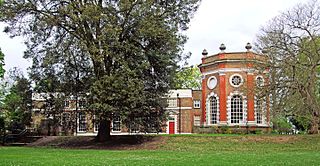 W
WThe Honorable Nellie Ionides was an English collector, connoisseur and philanthropist. She is best known for saving the 18th-century Octagon Room at Orleans House in Twickenham from destruction, and for donating this and also many pieces from her extensive art collection to the local council.
 W
WThe art collection of Ismar Littmann (1878–1934), a German lawyer who lived in Breslau, comprised 347 paintings and watercolors and 5,814 drawings from artists such as Lovis Corinth, Max Pechstein, Erich Heckel, Max Liebermann, Käthe Kollwitz, Lucien Adrion, and Otto Mueller.
 W
WAmir G. Kabiri is an Israeli businessman, investor, industrial, publisher, art collector, Chairman of the M.T. Abraham Group S.A., CEO & Chairperson of Aluminij Industries d.o.o., and best known as the owner of The Art Newspaper Israel, President of the M.T. Abraham Foundation and the Hermitage Museum Foundation Israel.
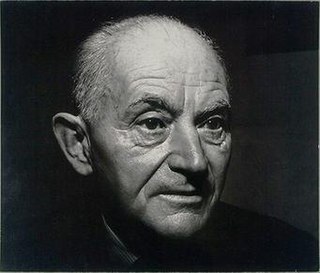 W
WDaniel-Henry Kahnweiler was a German-born art collector, and one of the most notable French art dealers of the 20th century. He became prominent as an art gallery owner in Paris beginning in 1907 and was among the first champions of Pablo Picasso, Georges Braque and the Cubist movement in art.
 W
WAlphonse Kann was a prominent French art collector of Jewish heritage. He was a childhood playmate and adult friend of the writer Marcel Proust, who incorporated several of Kann's features into the character Charles Swann.
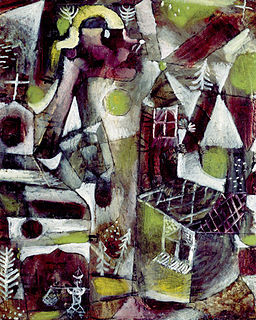 W
WSophie Lissitzky-Küppers (1891–1978), born Sophie Schneider, was a German art historian, patron of the avant-garde, author, and art collector.
 W
WSerena (Szeréna) Pulitzer Lederer was the spouse of the industrial magnate August Lederer, close friend of Gustav Klimt and instrumental in the constitution of the collection of Klimt's art pieces.
 W
WFritz Mannheimer was a German-born and, from 1936, Dutch banker and art collector who was the director of the Amsterdam branch of the Berlin-based investment bank Mendelssohn & Co. that was for some time the main supporter of the Dutch capital market. Known as the "King of Flying Capital", he was one of the main organisers of credit for post-war Germany. His international financial work brought him recognition, such as being awarded Grand Officer of the Légion d'honneur. His collection was bought by Hitler in 1941, but it was returned to the Netherlands after the war.
 W
WMargarete Mauthner was a German art collector, patron, translator and author, persecuted by Nazis because of her Jewish origins. Her works were published by Bruno Cassirer.
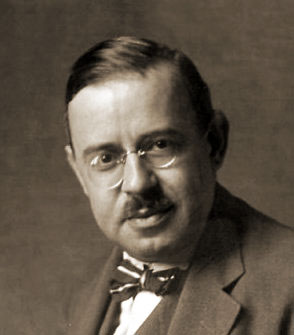 W
WAugust Liebmann Mayer was a German curator, art historian and art collector specializing in Spanish Golden Age painting. He was fired from his job, his art collection was looted and he was murdered by Nazis because he was Jewish.
 W
WKarl Mayländer was an Austrian art collector and businessman who was deported in 1941 from Vienna to Łódź, in German-occupied Poland, by the Nazis and later murdered in the Shoah.
 W
WMax Meirowsky was a German-Jewish industrialist and art collector persecuted by the Nazis.
 W
WPaul Robert Ernst von Mendelssohn-Bartholdy was a German Jewish banker and art collector. The persecution of his family under the Nazis has resulted in numerous lawsuits for restitution.
 W
WMenzel v. List was a landmark restitution case involving Nazi looted art.
 W
WKathryn Bache Miller was an American art collector and philanthropist.
 W
WLudwig Mond was a German-born chemist and industrialist who took British nationality. He discovered an important, previously unknown, class of compounds called metal carbonyls.
 W
WAlfred Alvarez Newman, also known as Alfred Abraham, was an English metalworker and art collector.
 W
WFernand Ochsé was a French Jewish designer, dandy, author, composer, painter and art collector.
 W
WJules Porgès was a Paris-based financier who played a central role in the rise of the Randlords who controlled the diamond and gold mining industries in South Africa.
 W
WJulius Priester was a wealthy Jewish industrialist and art collector in Vienna whose properties and art collection were looted by the Nazis.
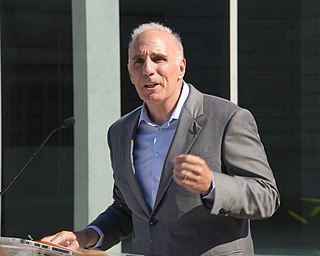 W
WMitchell Rales is an American billionaire businessman, and a collector of modern and contemporary art. He co-founded Danaher Corporation in 1983 and is the chairman of its executive committee. Rales is one of the Washington, D.C. region's eleven billionaires. In collaboration with his wife Emily Wei Rales, an art historian and curator, he has established Glenstone, a private museum in Potomac, Maryland, which presents exhibitions of their collection of art. As of October 2021, his net worth was estimated at US$7 billion.
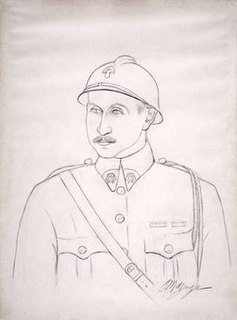 W
WLéonce Rosenberg was an art collector, writer, publisher, and one of the most influential French art dealers of the 20th century. His greatest impact was as a supporter and promoter of the cubists, especially during World War I and in the years immediately after.
 W
WPaul Rosenberg was a French art dealer. He represented Pablo Picasso, Georges Braque and Henri Matisse. Both Paul and his brother Léonce Rosenberg were among the world's major dealers of modern art.
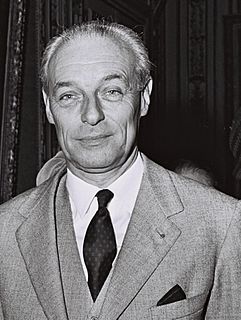 W
WBaron Guy Édouard Alphonse Paul de Rothschild was a French banker and member of the Rothschild family. He owned the bank Rothschild Frères from 1967 to 1979, when it was nationalized by the French government, and maintained possessions in other French and foreign companies including Imerys. He was named to the International Best Dressed List Hall of Fame in 1985.
 W
WLouis Nathaniel, Baron de Rothschild was an Austrian baron from the famous Rothschild family. He was born in Vienna on 5 March 1882 and died of heart failure while swimming in Montego Bay, Jamaica on 15 January 1955.
 W
WStefan Simchowitz is a Los Angeles based art collector, art curator, and art advisor. He is a vocal proponent of social media as a legitimate way of discovering, distributing, and popularizing the fine arts, primarily using Facebook and Instagram as platforms for self-promotion, discovering new artists, and endorsing those he already manages.
 W
WErich Šlomović (1915–1942) was a Yugoslav art collector. He was an assistant and protégé of Ambroise Vollard.
 W
WMax Steinthal was a German banker director and supervisory board chairman of the Deutsche Bank. He was responsible for financing Berlin's underground railway.
 W
WMax Stern (1904-1987) was a German-Canadian arts benefactor, art historian, and owner of Montreal's Dominion Gallery. He played an important role in promoting young and unknown Canadian artists. Before immigrating to Canada, he was the owner and director of the prestigious Galerie Stern in Düsseldorf. In 1937 he was forced by the Nazi Government to close his gallery. After many of the gallery's work were sold at auction or confiscated by the Nazis, he fled Germany to London where he was initially interned as an enemy alien for two years before being allowed to emigrate to Canada.
 W
WErnest Jacques Thiel was a Swedish financier and art collector whose former villa in the Stockholm park area Djurgården today houses the Thiel Gallery.
 W
WTristan Tzara was a Romanian and French avant-garde poet, essayist and performance artist. Also active as a journalist, playwright, literary and art critic, composer and film director, he was known best for being one of the founders and central figures of the anti-establishment Dada movement. Under the influence of Adrian Maniu, the adolescent Tzara became interested in Symbolism and co-founded the magazine Simbolul with Ion Vinea and painter Marcel Janco. During World War I, after briefly collaborating on Vinea's Chemarea, he joined Janco in Switzerland. There, Tzara's shows at the Cabaret Voltaire and Zunfthaus zur Waag, as well as his poetry and art manifestos, became a main feature of early Dadaism. His work represented Dada's nihilistic side, in contrast with the more moderate approach favored by Hugo Ball.
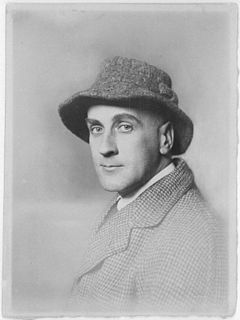 W
WWilhelm Uhde was a German art collector, dealer, author and critic, an early collector of modernist painting, and a significant figure in the career of Henri Rousseau.
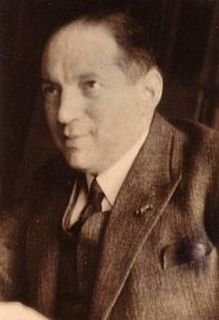 W
WWalter Westfeld was a German Jewish art collector and art dealer who was plundered and murdered by Nazis.